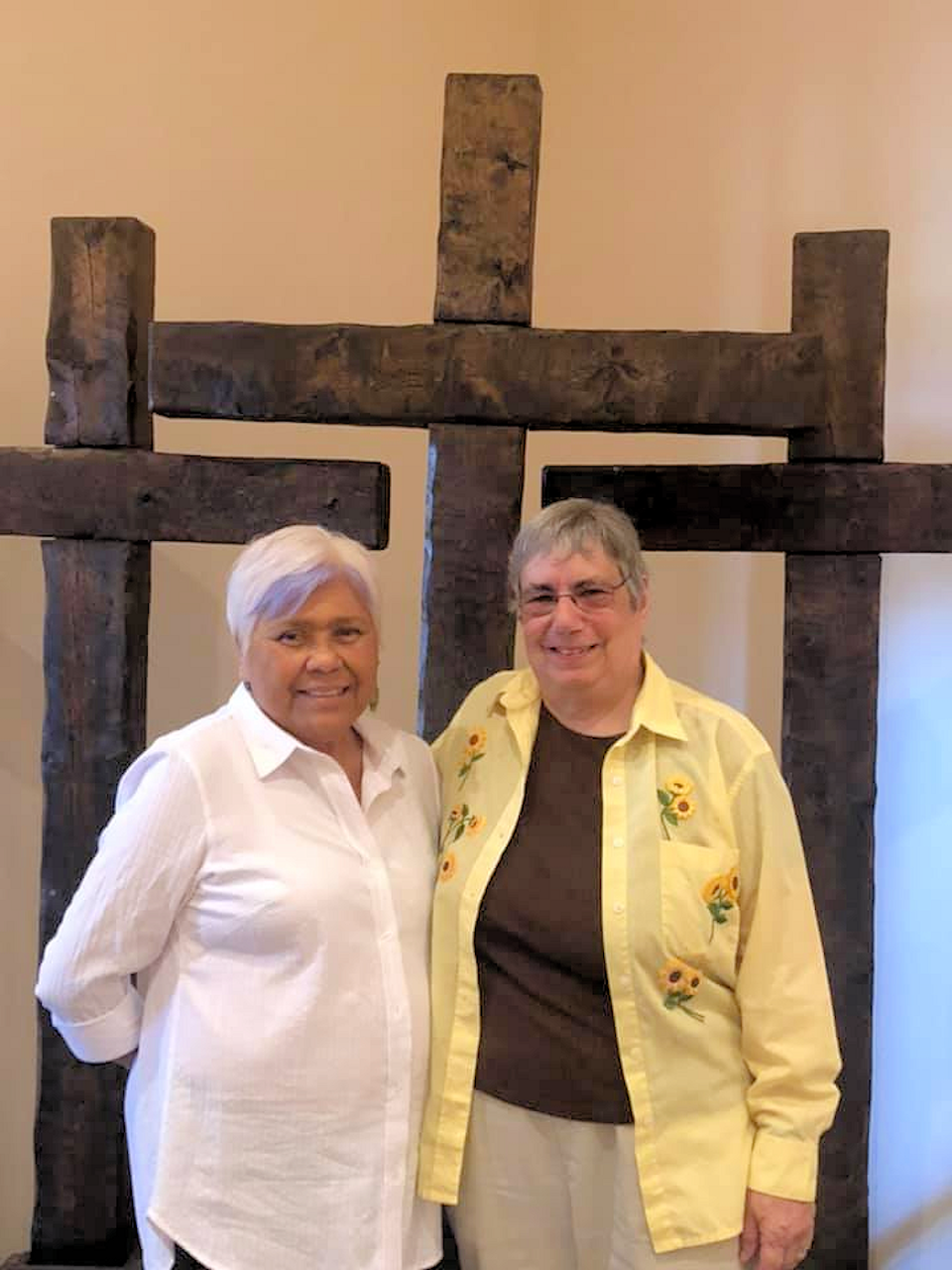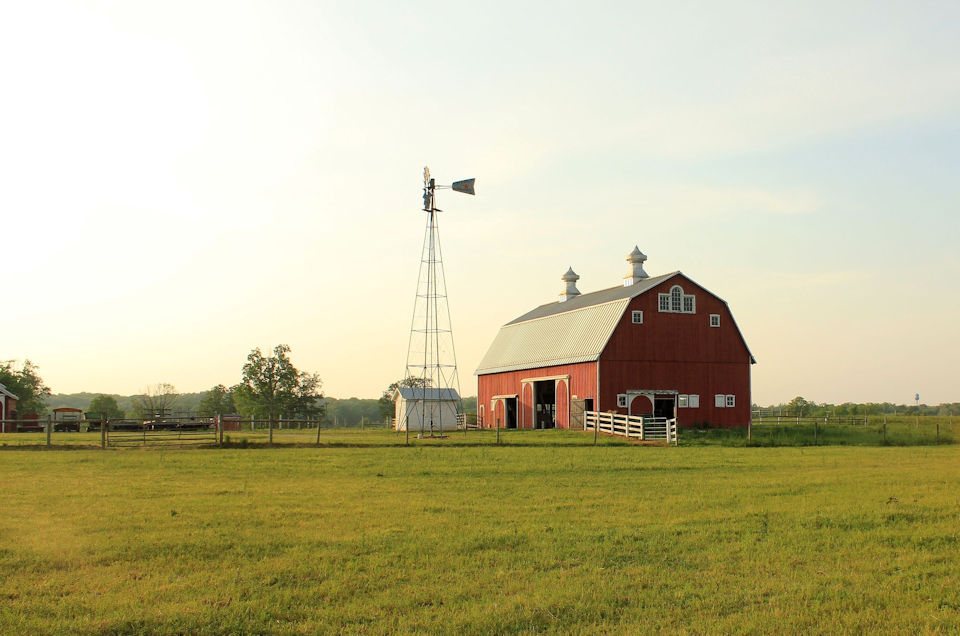Back from a national training event, the Rev. Peggy Paige, a newly certified Rural Chaplain, is now ready to serve to foster health in rural communities of Michigan.

On August 7-9, 2019, the Rev. Peggy Paige from the Northern Skies District of The Michigan Conference was one of 48 persons gathered in Pueblo, Colorado to consider the challenges and need for hope in rural communities. The Rural Chaplains Association (RCA) partnered with the Executive Committees of United Methodist Appalachian Ministries Network (UMAMN), Rural Church Network (RCN), and the United Methodist Rural Advocates (UMRA) to host the 2019 Focus Event.
Participants witnessed the certification of two persons as Rural Chaplains: Anne Marshall of Oklahoma and the Rev. Peggy Paige of Michigan.
Peggy has long been active in issues of town and country. She has held offices in the Detroit Conference she calls home, and she has served as an officer in the National United Methodist Rural Advocates. She says, “As a Rural Chaplain in Michigan one of my goals is to share information and resources with persons living in rural communities.” She lifts up the Rural Local Initiative Support Corporation (LISC) as a key resource. “They have partnered with NACo (National Association of Counties) and RCAP (Rural Community Assistance Partnership) to develop a mobile app designed to identify areas with low or no connectivity to help ensure adequate funding for broadband infrastructure being provided across the country,” she explains.
Peggy shares some practical advice. “TestIT is an iOS/Android mobile app – with the press of a simple button, users will be able to test their broadband speed from anywhere. No personal information will be collected. I encourage you to download the app and then click ‘Test Speed Here!’ and encourage your family, friends, and constituents to join in the effort as well.”
The Focus Event in Pueblo was a time for building awareness, identifying needs, and exploring resources. The opening session on Wednesday used table conversations centered on the overarching question of, “What does it take to create healthy, safe, rural communities?” Thursday began with a visit to an irrigated farm to learn about the challenges of farmers and ranchers not having sufficient water. It was an eye-opening time to try to grasp the effects of buying and selling water rights.
On site at Ordway United Methodist Church, the group heard a panel discussion on the impact of marijuana on rural communities. Local commissioners explained the economic benefits of legalized marijuana. A caseworker from the Department of Human Services offered thoughts on the challenges and needed education for parents and others. Nurse Practitioner Karen Tomky spoke about the desperate need for health care providers in rural areas and the difficulty of attracting them to serve in rural areas.
At Fowler United Methodist Church the conversation centered around the impact of opioids on rural communities including: homelessness, drug rehabilitation, and prison/re-entry ministry. The use of opioids is not only an addiction problem. It also causes a reduction in the workforce, increases crime related to domestic violence and property, while overtaxing emergency systems. There is a lack of qualified professionals and facilities to address these issues in the rural area.
Staff at Fort Lyon Supportive Residential Community spoke about providing recovery services, transitional housing, peer-led recovery and vocational training for residents. The group heard about LISC Rural (Local Initiative Support Corporation) which was developed during the government war on poverty program. A priority of LISC is economic development which includes Capacity Building Grants and Catalyzing Workforce Development.
A local restaurant owner and farmer of Milberger Farms noted the aging population of farmers. The farmers work long days, sometimes 18 hours or more, and even if they do everything right, a year of bad weather can be devastating financially. Even a good year can have minimal returns in our present economy.
Friday began with an inspiring and challenging presentation by Sister Nancy Crafton of El Centro de Los Pobres. This ministry is presently serving over 900 immigrant and low income families. Sister Nancy shared several heartfelt stories of very real people and situations of immigrants living in a state of perpetual fear – fear of being arrested, fear of being separated from their families, fear of their children being “imprisoned.” In the past, being apprehended without appropriate documentation was a misdemeanor, but new laws now make it a felony, causing the separation of children from parents. In one session the panel of young adults discussed: What does it take to create healthy, safe, rural communities? Everyone was inspired by their true vision of hope.
During a final reflection session, one participant summed up the feelings of many with the comment: “We heard both sides of the coin – we heard the pros of the marijuana on Thursday and the cons on Friday. We heard the pros and cons of young people getting an education and moving out of the area versus the need to have them return to their local area.”
In summary Roger Grace, chair of RCA, noted that we need to hear both sides. It is not about changing the mind of the other side. It is about hearing the other side. We have more in common than differences separating us, no matter where we call home. It is about respect and acceptance.
Learn more about Rural Chaplains, an Advance Project of The United Methodist Church, at www.rcahome.org.
Last Updated on October 30, 2023

